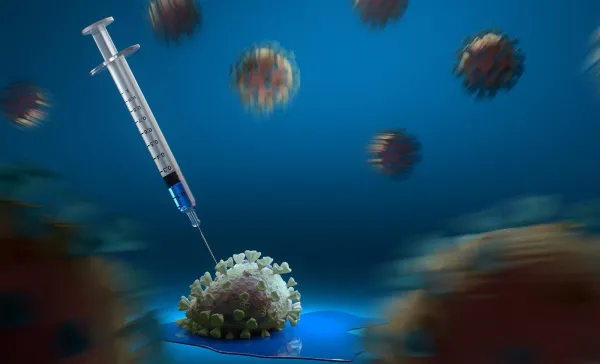By: Annie Priya
January 15 2021

Vaccine manufacturers Pfizer, AstraZeneca, and Moderna, have rejected the allegations of using pork gelatine in their vaccines
Vaccine manufacturers Pfizer, AstraZeneca, and Moderna, have rejected the allegations of using pork gelatine in their vaccinesSeveral posts claiming that pork extract is used in developing COVID-19 vaccines is making rounds on social media. The claim sparked controversy and dissuaded people from the Muslim community from taking the vaccine because it contains pig fat, which is deemed against their religion. However, the vaccine manufacturers Pfizer, AstraZeneca, and Moderna, have rejected the allegations of using pork gelatine in their vaccines. The manufacturers have clarified that pork products are not part of the vaccines, though pork-derived gelatine is known to be a stabilizer for safe storage and transportation of the vaccines. In the UK, the British Islamic Medical Association (BIMA) and other Islamic scholars approved the Pfizer-BioNTech vaccine, stating the vaccine was halal "based on the information available." Moreover, many Muslim-majority countries like Bahrain, Saudi Arabia, Bangladesh, Malaysia, Indonesia, the UAE and Pakistan have approved the Sinopharm vaccine, while Singapore's government has authorised the Pfizer-BioNTech vaccine for use in the country. The Jamaat-e-Islami Hind (JIH), a Muslim body in India, categorically stated that Muslims are permitted to use the Coronavirus vaccines, even if they contain pork extracts, as it sought to dispel all rumours suggesting otherwise, reported The Print. Furthermore, there are reports that a halal-certified vaccine may be on the horizon. Malaysia's MYEG signed a deal with China's Anhui Zhifei Longcom Biopharmaceutical to conduct Phase-3 clinical trials in Malaysia and to obtain halal certification for a COVID-19 vaccine. Indonesia's state-owned PT Bio Farma, which is working with China's Sinovac Biotech Ltd, has also confirmed that it is seeking halal certification for the COVID-19 vaccine. The COVID-19 pandemic has given rise to a lot of potentially dangerous misinformation. For reliable advice on COVID-19 including symptoms, prevention and available treatment, please refer to the World Health Organisation or your national healthcare authority.